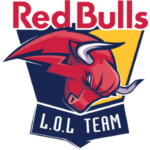According to Interpublic Group (IPG) agency Golin – when it comes to brands, “talkability” trumps truth. Golin’s 2017 Global Relevance Review also reveals that popularity, not trustworthiness, rules when it comes to relevance. Basically, today’s consumers want brands to be relevant to personal interests and passions. Let’s take a look at how these findings apply to the current state of esports as a marketing platform.
Friend not foe
Facebook, YouTube and Amazon (Twitch) will continue to push the prevalence of games-based social video. Likewise, young people’s attention/awareness will continue to gravitate towards gaming video content (GVC). Which according to SuperData, 665M people watch GVC across the globe – more than HBO, Netflix, ESPN and Hulu combined.
Brand marketing in esports can re-capture attention and boost relevancy among this new “lost generation,” which can’t be reached through traditional media and sports. Since digital sport is clearly defined passion point among a vast sea of GVC. And as game publishers exert more focus on esports content, unparalleled opportunities to tell brand stories are being born.
Winning with internet love
Vanity Fair is right – intense online fandom is the key to larger success. The fervor of dedicated online communities leads to widespread popularity – not vice versa. Competitive gaming communities are wired along the exact same lines. Their growing popularity attributed to a core of dedicated enthusiasts across the online world.
Esports marketing is an opportunity to tap deep seated “tribal” passion through creative narratives. For example, energy drink brand Red Bull recently took esports sponsorship to the next level and created a League of Legends Challenger Series team called “Red Bulls.”
Image courtesy of Google
The Red Bulls’ journey to secure a League Championship Series (LCS) spot immediately boosts “talkability” but more importantly cements brand authenticity among League of Legends (LoL) enthusiasts. This deep game-specific relevance is a foundation for widespread popularity across the larger esports landscape. Non-endemic brands are wise to note Red Bull’s execution here.
The changing face of influence
Just as attention is fragmenting, so is popularity and influence. YouTube is fast becoming the new TV, because it delivers an endless supply of audience driven entertainment, cross-screen and on-demand. Electronic sports are similarly fan-centric entertainment – made popular by multiple communities of people expressing similar interests.
Image courtesy of AdWeek
Even the concept of celebrity isn’t black and white anymore. Digital athletes may not have the level of celebrity of mainstream athletes. But that won’t matter much as tomorrow’s consumers perceive the world through a digital first lens. For example, Generation Z (ages 13 – 20) look up to social media stardom more than mainstream celebrity – film, TV, etc. (see image above).
In esports, raw exposure numbers, e.g. ratings, and “impressions” are only half the value. The other, more important, half comes from highly relevant association with consumers – most likely to pay attention. The entire concept of influencer marketing is driven by as much. Likewise, the core of brand marketing in esports is about earning attention through relevant engagement.


